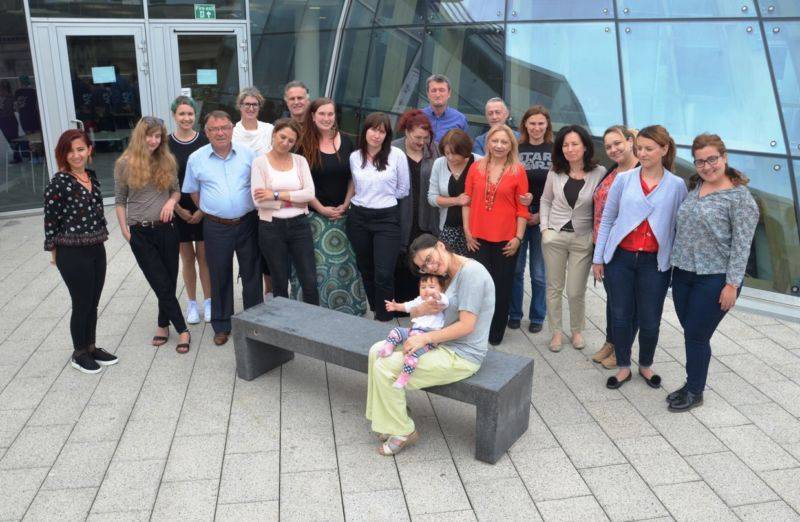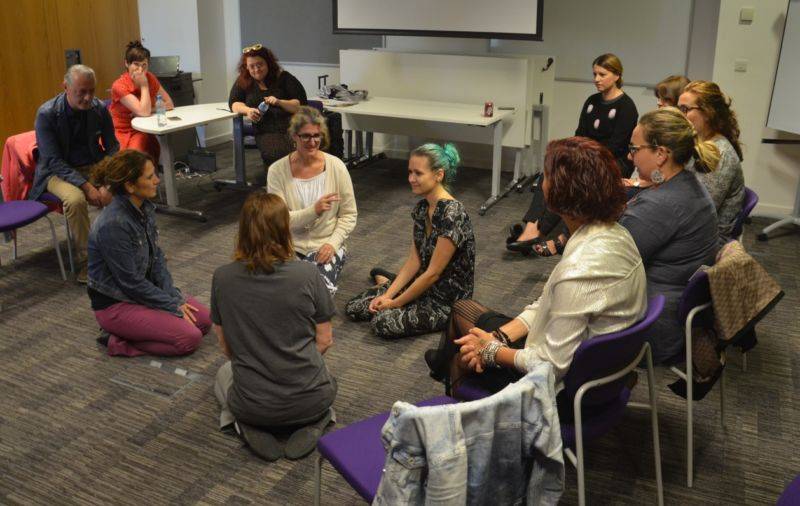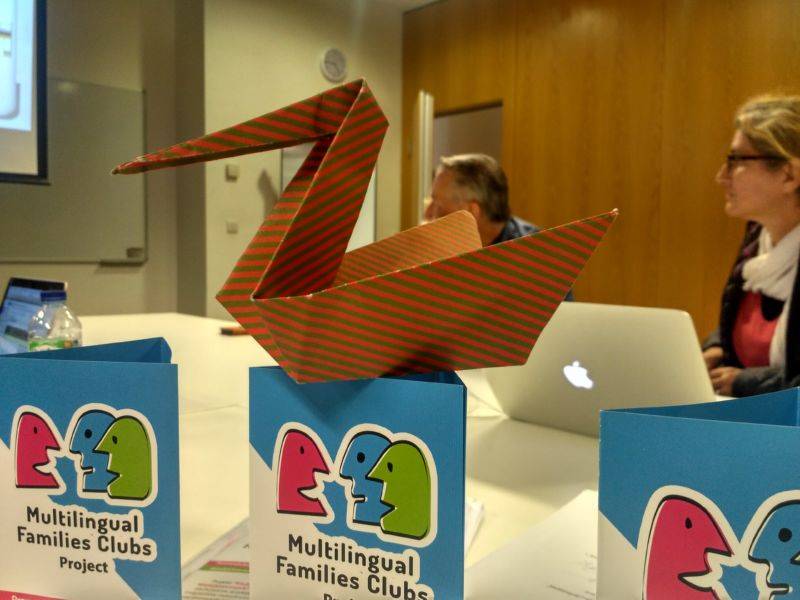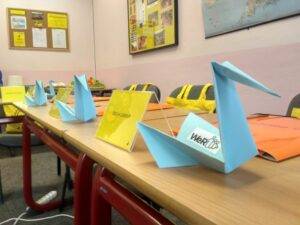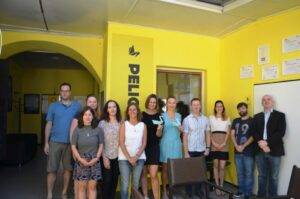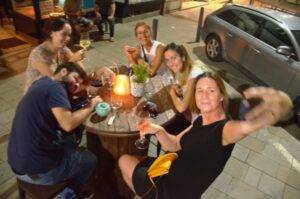Author: Kristýna
After the 1st meeting in Lisbon and training event in Dublin, we gathered in Brno to have the 2nd project meeting. The meeting was organised by PELICAN and took place from 11th to 12th September 2018.
In WeR1, our aim is to develop materials for teaching vocationally oriented language skills, therefore the first day of the meeting was dedicated mainly to the intellectual outputs of the project, including handbook, toolkit, videos, and course guide. Among other things, we got to watch a video showing a housekeeper cleaning a hotel room made by PELICAN, which can serve as a great learning tool to newly arrived who imagine themselves working in a hotel. We also watched funny animated videos introducing automobile industry created by Coneqt. We cannot wait to launch the pilot testing of the learning programs and to get some feedback from the target group. It was really inspiring for us to share the progress we had made!
When we were finished with our agenda for the first day, we decided to explore the city of Brno. We were guided by Vladimír from PELICAN, a big fan of history, who seemed to know everything about every single building and every single nook. Do you know why the bells in Brno ring twelve times at 11 o’clock? Well, if you do, you know more about Brno’s mythology than we did. The bells ring at 11 am instead of at noon in remembrance of a famous trick that Jean-Louis Raduit de Souches played on the Swedish army as it lay siege to Brno during the Thirty Years’ War. According to the story, Swedish general Torstenson declared he would abandon the siege if his army failed to conquer the city before the bells started to ring at noon. So de Souches simply decided to get the bells ring one hour earlier.
After the enriching walk, it was time for dinner. We had a reservation at Café Pilát which serves Moroccan and Middle Eastern cuisine. The meal was perfect, for some of us a bit (a bit more) spicy, but still delicious. We then moved to the main square, Náměstí Svobody, which hosted beer and wine markets accompanied by traditional folklore music.
On day two, we focused mainly on project management and quality assurance of the outputs. We made some planning on what still nee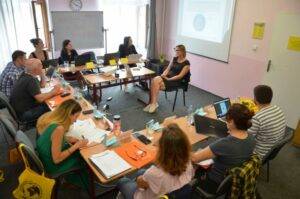 ds to be done and set deadlines for that. Apart from that, we recorded voice overs in English, Irish, Danish and Portuguese for the learning videos made by PELICAN. After that some of us did some quick souvenir shopping and later we had our last dinner together in the restaurant Jakoby.
ds to be done and set deadlines for that. Apart from that, we recorded voice overs in English, Irish, Danish and Portuguese for the learning videos made by PELICAN. After that some of us did some quick souvenir shopping and later we had our last dinner together in the restaurant Jakoby.
The venue of the next meeting will be Copenhagen, Denmark, home of world-famous author Hans Christian Andersen. See you there! 🙂
Spolek PELICAN invites all students, educators, and other experts and general public interested in intercultural education and employability of immigrants to international conference Live2Work. The conference is being held on the occasion of the finalization of the two-year European project Live2Work, which aims to develop innovative pedagogical tools for all those working with young adults in situations of professional vulnerability, including migrants and refugees.
When? January 11st-12th 2019
Where? Catholic University of Portugal, Lisbon (Portugal)
The aim of the conference is to raise awareness about the processes of the development of life projects with populations in
situations of vulnerability, and to introduce the innovative methods and tools that have been created within the Live2Work project. During the conference, topics such as vulnerability (personal, social and professional), life projects, migration, multiculturalism, inclusion, social justice and equality, etc. will be presented and discussed.
Important dates:
Abstract submission (only posters): until November 30th 2018
Author registration: until December 21st 2018
General public registration: until December 21st 2018
Conference: January 11st-12th 2019
No fees associated to the registration.
The conference official languages are Portuguese and English.
More information about the conference are available here.


